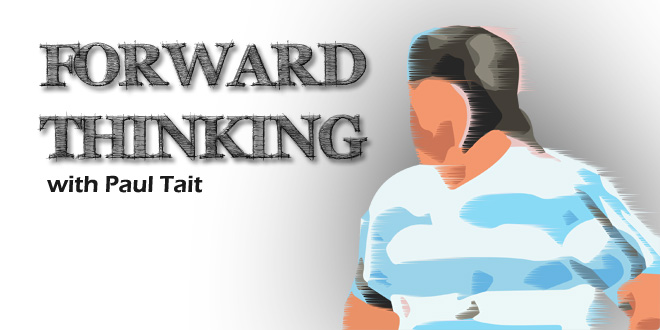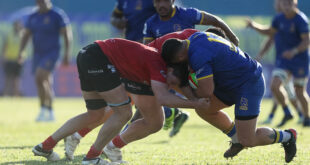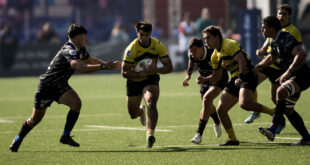Professional rugby is such serious business these days that the 2015-2016 Top 14 season has began already, long before the end of summer. The 2015 Final was as recent as June 13, or a mere 69 days before Toulon hosted Racing 92 in the season opening on Friday. I can recall well who was involved, that’s how recent it was.
While it is not ideal it retains the integrity of the competition which is the most financially successful domestic professional competition in rugby. Not everybody agrees with critics pointing out their dislike of there being too many low scoring matches, of the number of non-French players involved and of it damaging other competitions.
Global Gain
The spread of players, though, is part of what makes the league special. It offers so much to nations who lack professional rugby. Take Fiji and Argentina as cases in point. Both have been vital members of the non-traditional powers capable of upsetting the established order over the years as they both did in France during Rugby World Cup 2007. Fiji reached the Quarter Finals by eliminating Wales while Argentina reached the Semi Finals after eliminating Ireland and Scotland.
Both teams got as far as they did based on their players being exposed to professionalism which they could not find at home or in their regions. Of Fiji’s 15 players Isoa Neivua and Sunia Koto were based in Fiji. Graham Dewes was playing amateur club rugby in New Zealand while the remaining twelve played professional rugby in England, France, Italy and Japan.
I certainly will never forget what a Fijian friend said to me in mid 2007. His exact words were ”if Fiji make it to the Quarter Finals it is because of France”. He, like I, was faced with many criticisms of the competition holding back the global game but the World Cup seemed to provide the answers.
Argentina’s team that eliminated Ireland had ten Top 14 players – Patricio Albacete, Lucas Borges, Ignacio Corleto, Juan Martin Hernandez, Mario Ledesma, Gonzalo Longo, Lucas Ostiglia, Agustín Pichot, Rodrigo Roncero and Martín Scelzo. The remaining five played included Manuel Contepomi whose most recent club was Italian, Felipe Contepomi based in Ireland and the Fernández Lobbe brothers based in England. Horacio Agulla was the only Argentine based player.
Other countries have developed based on acquiring to the same principles. Georgia’s superiority to that of Spain having an irrefutable connection to openly encouraging players to move to France to play where they can, very often in the lower divisions. Canada has looked to do the same in recent years but lacks anywhere near the same number of players as that of Fiji or Georgia playing in France.
Unpredictability
Many outside of France simply have a reason to watch. Canadians like to follow Clermont due to Jamie Cudmore and Toulon is likely to attract new found interest now due to the arrival of Samu Manoa. But the league itself is very unpredictable with it being common to see upset results in addition to different champions.
It was not always this way though as Toulouse won the competition four-straight seasons from 1994-1997. Since then though no team has been able to win it more than two years in-a-row. It is quite curious then that Toulon made history this year by winning a third-straight European Final. Since Rugby World Cup 2011 Toulon has appeared in three Top 14 finals but has lost two.
The winners since the last World Cup have been different every year with Toulouse, Castres, Toulon and Stade Français winning in that order. More remarkable perhaps is that Castres finished 12th last season level on 52 competition points with the relegated Bayonne. Castres’ 11 wins represented one more than Bayonne.
The 9th placed finishing La Rochelle won fewer overall with 10 wins but collected sufficient points through draws and bonuses to avoid relegation. La Rochelle had 54 points, thus less than one win more, on points, than Bayonne. The same was true of Montpellier, Brive, Grenoble and Brive.
Relegation
For the above reason predicting relegation is therefore no easy task. So competitive has the Top 14 become that no team is guaranteed of a place in the play-offs or of avoiding relegation. Few certainties remain but there is nonetheless a general geographical rule in which it is South-Western teams that are predominantly being relegated every season.
The season that immediately followed France’s hosting of the World Cup in 2007 featured a drastically different landscape. Teams belonging to the South-West included Albi, Auch, Bayonne, Biarritz, Castres, Dax, Montauban and Toulouse. Eight, or a direct majority, were thereby from the region with Toulouse being unique in not being a small-town club.
Of them only Castres and Toulouse remain in the Top 14 this season but three others – Agen, Bordeaux and Pau are competing. Both Agen and Pau are back after an extended period in the second division while the much larger Bordeaux has become an established Top 14 club and will play in the European Rugby Champions Cup this season.
Like Bordeaux the majority of other clubs to have won promotion into the Top 14 since 2007 that appear less likely for relegation are Grenoble, La Rochelle, Racing 92 and Toulon. Quite simply this change is a reflection of the Top 14 becoming increasingly a big-city competition and less so one mainly made up of small-town teams supported by rural surroundings.
Of them La Rochelle would be the most likely to face relegation but the likelihood of Agen or Brive dropping is arguably stronger. Smart money would be on these two in addition to Oyonnax while Pau ought to have the players to stay afloat. Not withstanding the long season and the impact of the World Cup will play a huge factor in the fates of all fourteen competitors.
 Americas Rugby News Rugby news from across the Americas!
Americas Rugby News Rugby news from across the Americas!




